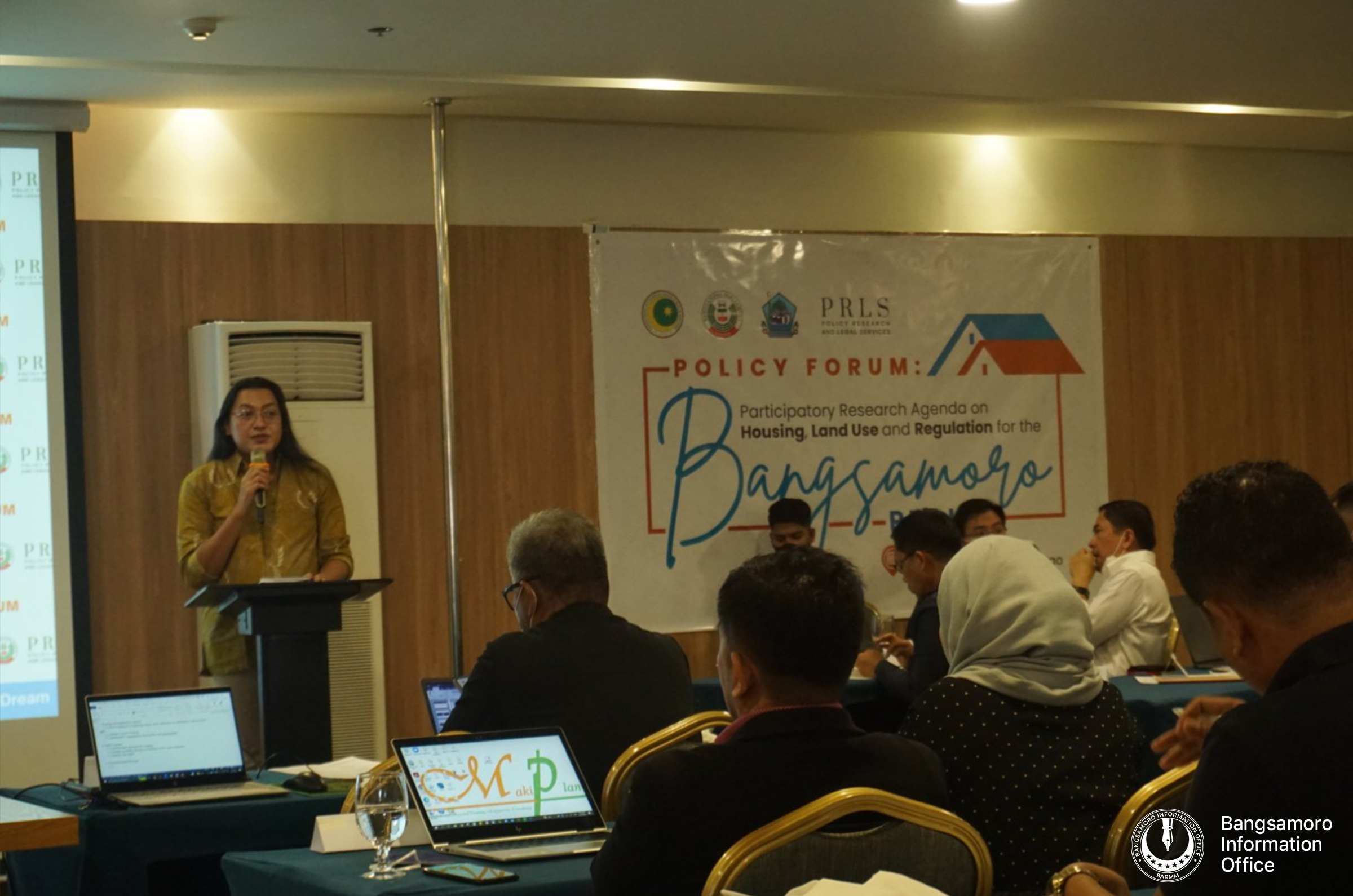DAVAO CITY—Policy experts from the academe, development partners, and research institutions convened today, Oct. 3, in this city to further improve and set policy agenda for the housing, land use and regulation for the Bangsamoro region.
The Ministry of Human Settlements and Development (MHSD), in partnership with the Bangsamoro Parliament’s Policy Research and Legal Services (PRLS), spearheaded the event in consonance to the celebration of “Urban October” developed by the United Nations, and the “National Shelter Month” in the Philippines pursuant to Presidential Proclamation No. 662.
In his message, MHSD Minister Atty. Hamid Aminoddin Barra emphasized that “in as much as it is the Bangsamoro Government’s responsibility to facilitate housing delivery, we all have an individual responsibility in achieving sustainable human habitats and communities.”
He encouraged the participants to utilize the event’s platform to objectively discuss ideas and key challenges that constrain access to adequate housing and sustainable human settlements development.
“As we strive to overcome the pandemic and address the fragilities and inequalities it has exposed, now is the time to harness the transformative potential of urbanization for the benefit of the people and the land,” Barra added.
On the same event, Chief Minister Ahod Ebrahim, who virtually delivered his message, encouraged the participants to formulate policies that will aid provision of responsive strategic infrastructures for the benefit of the Bangsamoro and consistent with divine morals.
“Let us seize this opportunity to be creative and sustainable, and to formulate and suggest mechanisms that are anchored with our thrust to provide better services for the Bangsamoro people,” Ebrahim said.
“We must craft policies that are in accordance with Allah’s (SWT) will of entrusting these greatest gifts to us. As we enjoy these resources, let us acknowledge our duty to be responsible in maintaining, managing, monitoring, and enabling the environmental relationship of people and nature to be productive and sustainable,” he further said.
Policy expert and erudite scholar Dr. Nassef Manabilang Adiong, director for PRLS, tackled setting a policy research agenda and proposals for MHSD. He emphasized that agenda setting entails engaging different stakeholders to come up with realistic policy papers.
Meanwhile, Dr. Isidro Malaque III, chair of University of the Philippines Mindanao Architecture Department, discussed the timeline of policy development in the country and how does it affect the urban development.
The precarious status of urban development
As presented by Engr. Makmod Pasawilan of Mindanao Development Authority (MinDA), World Bank reported that there are 1.2 billion individuals across the globe who live in substandard housing and expected to reach 3 billion by 2030.
On the same report, 70% Filipinos live in substandard housing. While the urbanization level in the country was recorded at 54% as of 2020, Mindanao remained at 45%. With 1.75 million housing needs (2022), this simply translate into 11,611 hectares of land area.
While the national government is continually addressing the shelter issue, budget allocation to completely fill the gap in housing units remains a challenge.
According to the World Bank report, there are 6.5 million housing backlog in the country as of 2022 and projected to reach 22 million by 2040. This simply means that the government needs to build at least 345,000 housing units per year to catch up.
In the Bangsamoro region, numerous programs have been introduced since the inception of the Government of the Day. On top of MHSD’s housing programs, there are also other special programs like the KAPYANAN or Kapayapaan sa Pamayanan, one of the flagship programs of the Office of Chief Minister Ahod Ebrahim which provides core shelters primarily for the poorest of the poor in the region. (Abdullah Matucan/BIO)








